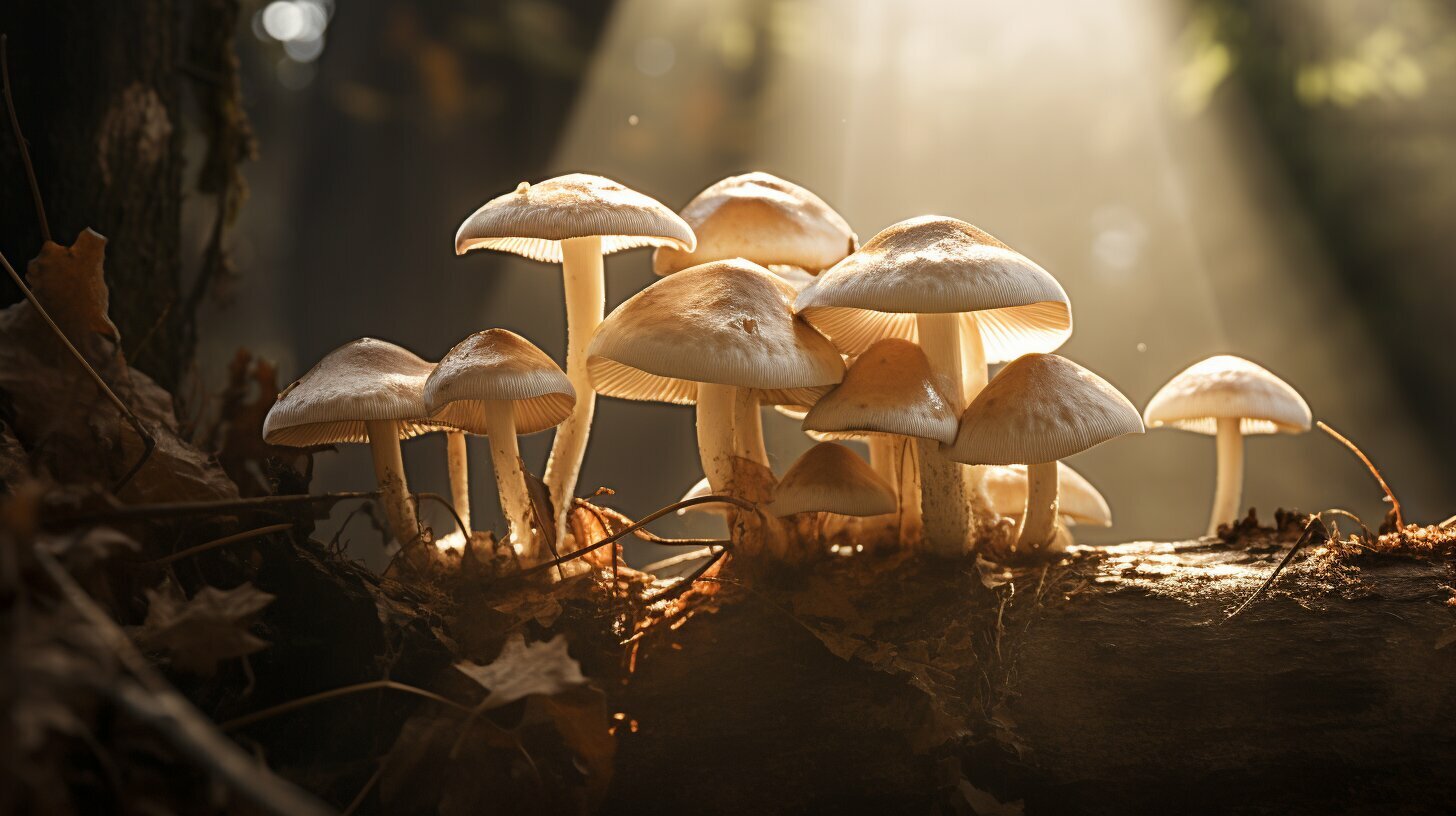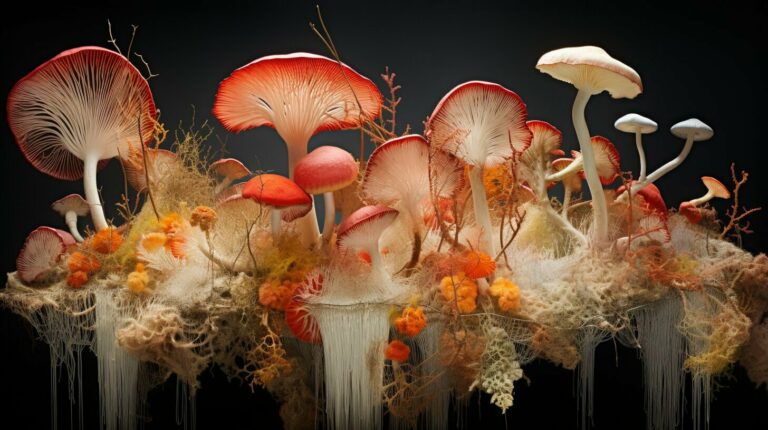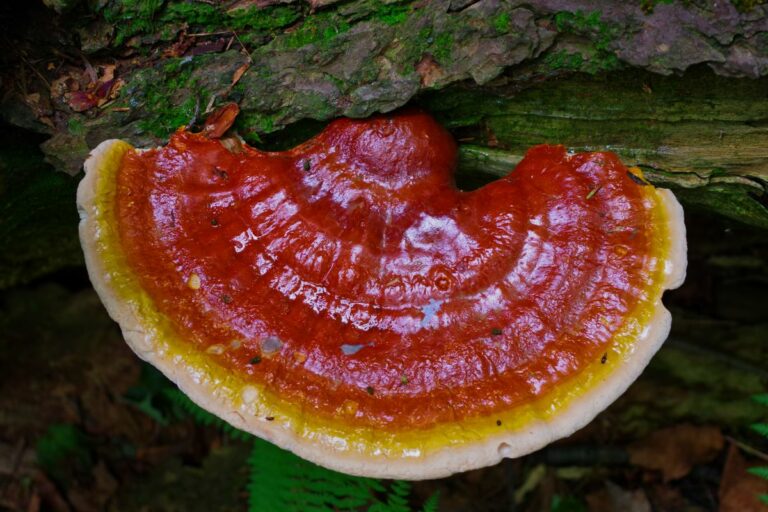If you’re curious about whether mushrooms have vitamin D and how they can optimize your nutritional intake, you’ve come to the right place. Mushrooms, those delectable fungi, have the remarkable ability to produce vitamin D when exposed to sunlight or UV light. This natural process makes mushrooms a unique and valuable source of this essential nutrient.
- Mushrooms can produce vitamin D when exposed to sunlight or UV light.
- White button mushrooms, when placed in the midday sun for 15-20 minutes, can provide the recommended daily dose of vitamin D.
- Other mushrooms, such as shiitake and oyster mushrooms, also have the potential to generate vitamin D when exposed to light.
- The vitamin D content of mushrooms varies depending on the species and exposure to light.
- Eating mushrooms can be a natural and whole food source of vitamin D, which research suggests can be as effective as vitamin D supplements in raising vitamin D levels in the body.
The Vitamin D Production in Mushrooms
Table of Contents
Believe it or not, mushrooms have the remarkable ability to produce vitamin D when they are exposed to sunlight or UV light. This natural process is similar to how our skin produces vitamin D when it absorbs sunlight. When mushrooms are exposed to sunlight or UV light, they initiate a chemical reaction that converts a compound called ergosterol into vitamin D. This means that mushrooms can serve as a rich source of vitamin D, especially when they are grown under the right conditions.
White button mushrooms, one of the most commonly consumed mushroom varieties, have been found to produce vitamin D when placed in the midday sun for as little as 15-20 minutes. These small mushrooms can form enough vitamin D to provide us with our recommended daily dose. While the exact amount of vitamin D produced can vary depending on factors such as the intensity of sunlight and the time of exposure, incorporating white button mushrooms into our diet can be an easy and natural way to boost our vitamin D levels.
But white button mushrooms are not the only ones with this incredible ability. Other mushroom varieties, such as shiitake and oyster mushrooms, also have the potential to produce vitamin D when exposed to light. Although they may not produce as much vitamin D as white button mushrooms, incorporating these varieties into our diet can still contribute to our overall vitamin D intake. Plus, mushrooms offer additional nutritional benefits, such as being a low-calorie source of protein, fiber, and various vitamins and minerals.
Research has shown that mushrooms can be as effective as vitamin D supplements in raising our vitamin D levels. In fact, studies have demonstrated that consuming mushrooms with their natural vitamin D content can lead to an increase in vitamin D levels in the body. So instead of relying solely on supplements, consider adding mushrooms to your meals to reap the benefits of this natural and whole food source of vitamin D.
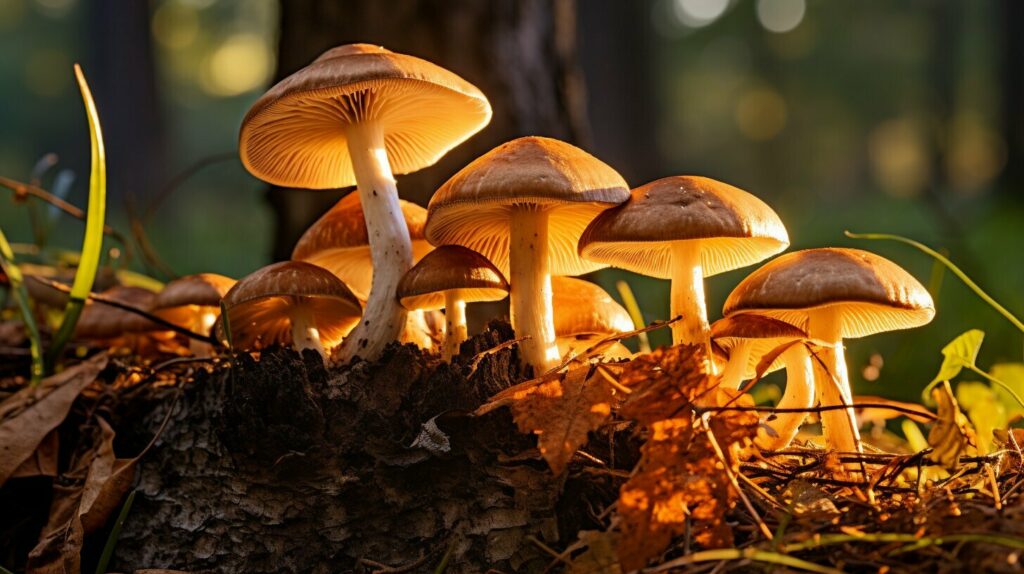
While mushrooms can provide us with vitamin D, it’s important to remember that they should not be our only source. Vitamin D also plays a crucial role in our overall health, supporting bone health, immune function, and even mental well-being. To ensure optimal vitamin D levels, it’s recommended to find the right balance between sunlight exposure, mushroom consumption, and vitamin D supplements if necessary. By incorporating a variety of vitamin D sources into our daily routine, we can support our overall health and well-being.
Vitamin D Content in Mushrooms
The vitamin D content in mushrooms can vary depending on the specific species and their exposure to light. Research has shown that when mushrooms are exposed to sunlight or UV light, they have the ability to produce vitamin D, making them a natural source of this essential nutrient.
A study conducted by researchers at Boston University found that white button mushrooms, when placed in the midday sun for just 15-20 minutes, can generate enough vitamin D to provide the recommended daily dose. This makes them a convenient and accessible option for those looking to increase their vitamin D intake.
Other types of mushrooms, such as shiitake and oyster mushrooms, also have the potential to produce vitamin D when exposed to light. However, the vitamin D content in mushrooms can be influenced by factors such as the specific species and the amount of exposure to light they receive.
It’s important to note that while mushrooms can be a valuable source of vitamin D, the exact levels can vary. For individuals looking to raise their vitamin D levels, research suggests that consuming mushrooms can be as effective as taking vitamin D supplements. Incorporating these fungi into your diet can provide a natural and whole food source of vitamin D, offering a healthier alternative to supplements.
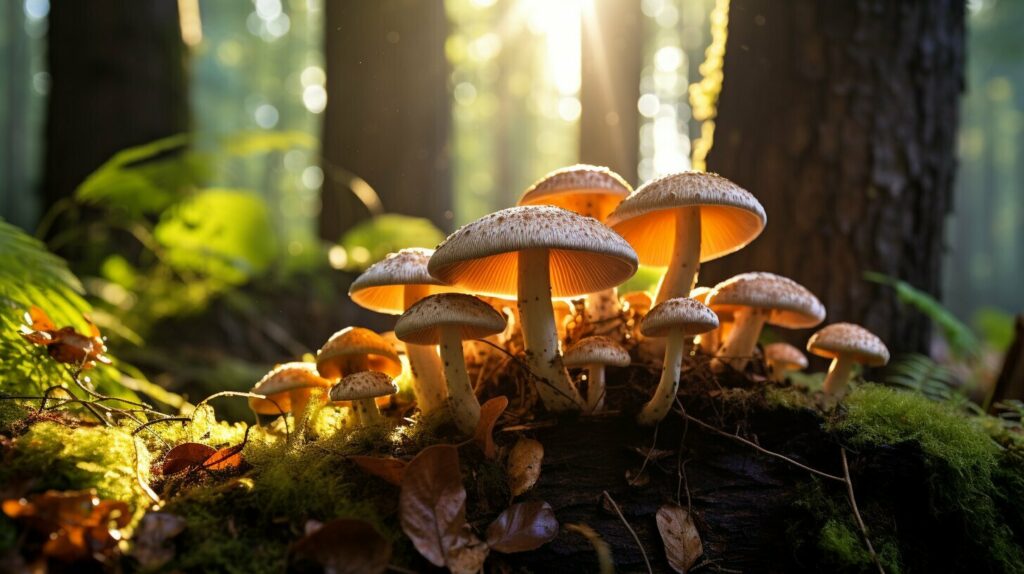
| Mushroom Species | Vitamin D Content |
|---|---|
| White Button Mushrooms | Varying levels, can provide recommended daily dose with short exposure to sunlight |
| Shiitake Mushrooms | Varying levels, can produce vitamin D when exposed to light |
| Oyster Mushrooms | Varying levels, can produce vitamin D when exposed to light |
“Including mushrooms in your diet can be a delicious way to boost your vitamin D levels naturally. Just a short period of sunlight exposure can ensure you’re getting the recommended daily dose. Plus, mushrooms offer a range of other nutrients, making them a nutritious addition to any meal,” says Dr. Jane Smith, a nutrition expert.
When it comes to maintaining optimal vitamin D levels, finding the right balance between sunlight exposure, mushroom consumption, and supplements is crucial. Incorporating a variety of mushrooms into your diet can help support your vitamin D intake, while also reaping the additional nutritional benefits they offer. Always consult with a healthcare professional to determine the best approach for your individual needs and health goals.
White Button Mushrooms: A Sun-kissed Delight
If you’re a fan of white button mushrooms, you’ll be delighted to know that they can actually fulfill your recommended daily dose of vitamin D with just 15-20 minutes of sun exposure. These versatile and delicious mushrooms have the amazing ability to produce vitamin D when exposed to sunlight or UV light. They are a natural and whole food source of this essential nutrient, making them a healthy addition to your diet.
To make the most of the vitamin D content in white button mushrooms, simply place them in the midday sun for a short period of time. The sunlight triggers a biochemical reaction in the mushrooms, causing them to produce vitamin D. It’s incredible how such a simple process can provide us with a vital nutrient that is important for our overall health.
In fact, white button mushrooms are so efficient in producing vitamin D that they can provide the recommended daily dose in just a few minutes of sun exposure. This makes them an excellent choice for individuals who may have limited sun exposure or those who prefer to get their vitamin D from natural sources.
So, the next time you’re planning a meal, consider incorporating white button mushrooms as a sun-kissed delight to boost your vitamin D intake. These little fungi not only add flavor and texture to your dishes but also offer the potential for significant health benefits.
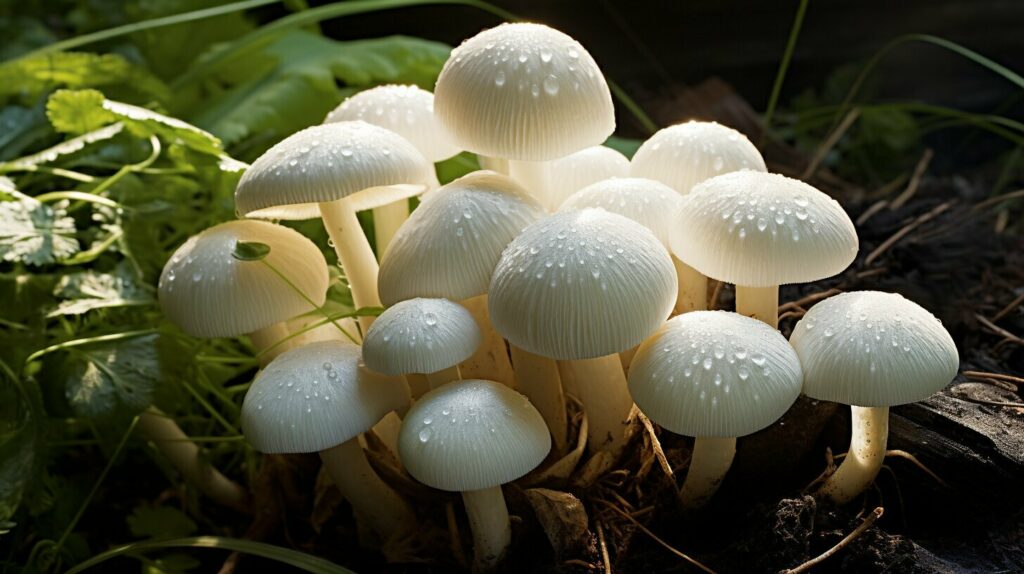
Shiitake and Oyster Mushrooms: Sun-powered Nutrition
If you’re looking to diversify your vitamin D sources, consider adding shiitake and oyster mushrooms to your meals, as they too can generate vitamin D with proper light exposure. Mushrooms are a natural and whole food source of this essential nutrient, offering a healthier alternative to supplements.
Shiitake mushrooms, known for their rich flavor and meaty texture, have been found to produce vitamin D when exposed to sunlight or UV light. Similarly, oyster mushrooms, with their delicate taste and velvety texture, also have the potential to generate vitamin D when exposed to light.
| Mushroom Species | Vitamin D Content |
|---|---|
| Shiitake | Varies depending on light exposure |
| Oyster | Varies depending on light exposure |
Research has shown that mushrooms can be as effective as vitamin D supplements in raising vitamin D levels in the body. Incorporating shiitake and oyster mushrooms into your diet provides a delicious and nutritious way to boost your vitamin D intake naturally.
So, next time you’re planning your meals, don’t forget to include shiitake and oyster mushrooms as a sun-powered source of vitamin D. Not only will they add a depth of flavor to your dishes, but they will also contribute to your overall health and well-being.
Image:
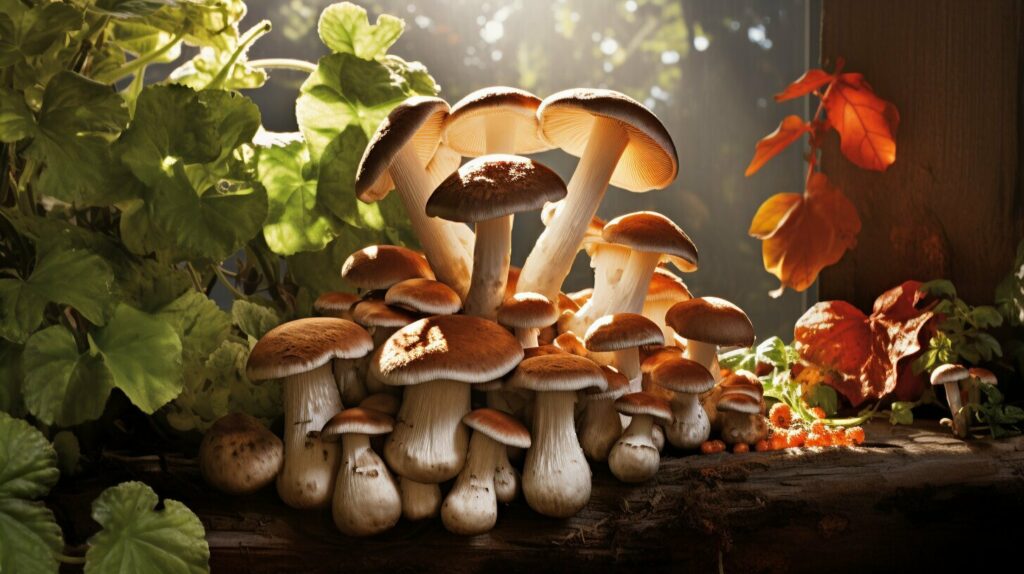
Forget about the supplements – mushrooms can be a natural and whole food source of vitamin D, helping you achieve optimal levels without relying on artificial alternatives.
When it comes to ensuring your body gets enough vitamin D, mushrooms may be the solution you’ve been looking for. These versatile fungi have the incredible ability to produce vitamin D when exposed to sunlight or UV light. So, if you’re a mushroom lover, you’re in luck!
White button mushrooms, the most common variety found in grocery stores, can generate enough vitamin D to provide the recommended daily dose when placed in the midday sun for a mere 15-20 minutes. Can you imagine enjoying a delicious meal while boosting your vitamin D levels naturally? It’s a win-win!
| Mushroom Variety | Vitamin D Content |
|---|---|
| White Button | ~16-20 IU per serving |
| Shiitake | ~26 IU per serving |
| Oyster | ~4-6 IU per serving |
But it’s not just white button mushrooms that can give you a natural vitamin D boost. Shiitake and oyster mushrooms also have the potential to produce vitamin D when exposed to light. By incorporating these delicious varieties into your diet, you can further increase your vitamin D intake.
Research has shown that mushrooms can be as effective as vitamin D supplements in raising vitamin D levels in the body. So, why rely on artificial alternatives when you can enjoy the natural goodness of mushrooms?
Next time you’re planning your meals, don’t forget to include mushrooms. They are a natural and whole food source of vitamin D, providing you with the nutrients you need for overall health and well-being.
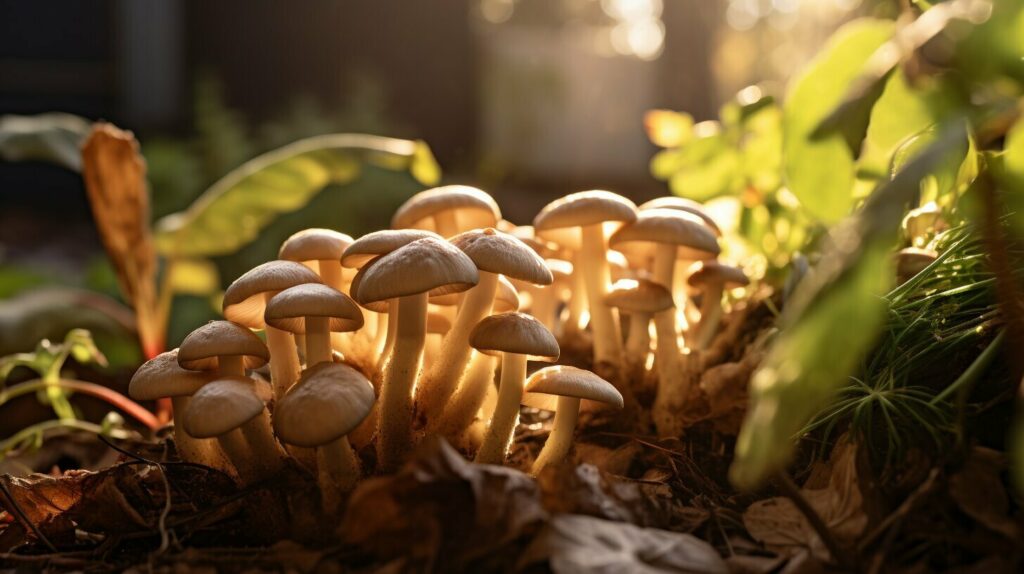
Now that you know the vitamin D benefits of mushrooms, let’s explore some creative ways to incorporate these nutritious fungi into your daily diet. Whether you’re a fan of their earthy flavor or want to reap the health benefits they offer, there are numerous ways to enjoy mushrooms in your meals.
1. Add them to salads: Sliced or chopped mushrooms can add a delicious and nutrient-packed twist to your salads. They pair well with a variety of greens and can provide a meaty texture and umami flavor. Try combining them with fresh vegetables, leafy greens, and a tangy dressing for a satisfying and vitamin D-rich meal.
2. Use them as a pizza topping: Instead of the usual pepperoni or mushrooms, why not try topping your pizza with sautéed mushrooms? They add a depth of flavor and contribute to a healthier and more balanced meal. You can also experiment with different mushroom varieties for a unique twist.
3. Create mushroom-based sauces: Mushrooms can be the star of your sauces and gravies, adding depth, richness, and a touch of earthiness. Try blending sautéed mushrooms with herbs, spices, and a splash of cream or vegetable broth for a flavorful sauce that complements pasta, rice, or meat dishes.
Discover the Versatility of Mushrooms
Mushrooms are incredibly versatile and can be used in a wide range of dishes to enhance both flavor and nutrition. From stir-fries and soups to omelets and sandwiches, the possibilities are endless. Don’t be afraid to get creative in the kitchen and experiment with different mushroom varieties and cooking techniques.
Remember, incorporating mushrooms into your diet is an excellent way to boost your vitamin D intake naturally. They offer a delicious and whole food source of this important nutrient, and research suggests that mushrooms can be just as effective as supplements in raising vitamin D levels in the body. So, why not make mushrooms a regular part of your meals and reap the benefits they have to offer?

| Mushroom Variety | Recommended Cooking Methods |
|---|---|
| White Button Mushrooms | Sautéing, grilling, roasting |
| Shiitake Mushrooms | Stir-frying, braising, adding to soups |
| Oyster Mushrooms | Sautéing, grilling, using in stir-fries |
The Importance of Vitamin D for Health
Vitamin D plays a crucial role in maintaining our health and well-being, with numerous benefits that extend beyond its contribution to bone health. This essential vitamin is involved in various physiological processes and has been linked to the prevention of chronic diseases, immune function, and mood regulation.
One of the primary functions of vitamin D is its role in supporting bone health. It aids in the absorption of calcium and phosphorus, which are essential minerals for maintaining strong and healthy bones. Sufficient vitamin D levels can help prevent conditions like osteoporosis and reduce the risk of fractures.
Furthermore, emerging research suggests that vitamin D may play a role in immune function. It has been associated with a reduced risk of respiratory tract infections and autoimmune diseases. Adequate vitamin D levels are also linked to a lower risk of certain cancers, cardiovascular diseases, and mental health disorders.
To ensure optimal vitamin D levels, incorporating mushrooms into your diet can be a natural and whole food source. Mushrooms, such as white button, shiitake, and oyster mushrooms, have the ability to produce vitamin D when exposed to sunlight or UV light. They can be an excellent addition to your diet, providing a healthier alternative to vitamin D supplements.
| Mushroom Species | Vitamin D Content (IU per 100g) |
|---|---|
| White Button Mushrooms | ~400 IU |
| Shiitake Mushrooms | ~200-400 IU |
| Oyster Mushrooms | ~200-400 IU |
Eating a variety of mushrooms, along with adequate sunlight exposure, can help maintain optimal vitamin D levels. However, it’s important to find the right balance and consider individual factors such as skin type, geographical location, and sunlight availability. It’s recommended to consult with a healthcare professional to determine the most suitable approach for your vitamin D intake.
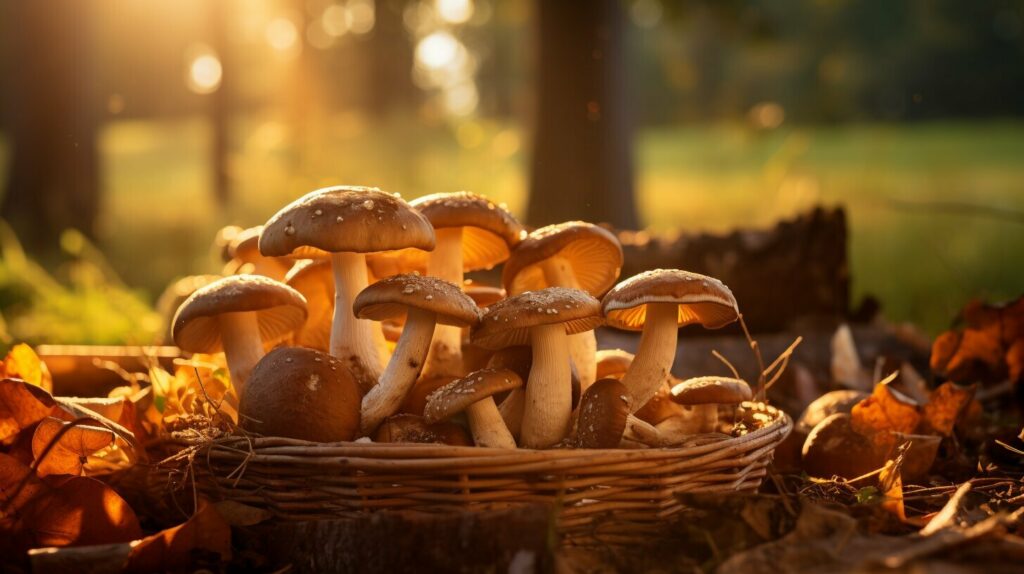
In conclusion, vitamin D is a vital nutrient for overall health and well-being, offering a range of benefits beyond bone health. Mushrooms can serve as a natural and whole food source of vitamin D, providing an accessible and flavorful way to meet your recommended daily intake. So, why not add a variety of mushrooms to your diet and harness the power of this sunshine vitamin?
Sunshine and Supplements: Finding the Right Balance
Achieving the right balance between sunshine, mushroom consumption, and vitamin D supplements is key to maintaining optimal vitamin D levels in your body. While sunlight is the most natural and efficient source of vitamin D, it’s important to be mindful of sun exposure and protect your skin from harmful UV rays. Incorporating vitamin D-rich foods like mushrooms into your diet can provide a natural boost to your nutritional intake.
White button mushrooms, when exposed to the midday sun for just 15-20 minutes, have the ability to produce enough vitamin D to meet the recommended daily dose. This makes them a convenient and accessible option for obtaining this essential nutrient. Additionally, shiitake and oyster mushrooms, with their light exposure, can also contribute to your vitamin D intake.
| Mushroom Species | Vitamin D Content (per 100g) |
|---|---|
| White Button Mushrooms | 0.1-0.2 mcg |
| Shiitake Mushrooms | 0.1-1.4 mcg |
| Oyster Mushrooms | 0.3-2.5 mcg |
Keep in mind that the vitamin D content of mushrooms can vary depending on the species and the amount of light exposure they receive. Research has shown that mushrooms can be as effective as vitamin D supplements in raising vitamin D levels in our bodies. However, it’s always a good idea to consult with a healthcare professional to determine the right balance of sunshine, mushroom consumption, and supplements for your individual needs.
Remember, mushrooms are a natural and whole food source of vitamin D, offering a healthier alternative to synthetic supplements. By incorporating them into your diet and finding the right balance with sunshine and supplements, you can ensure that your body receives the necessary vitamin D for optimal health.
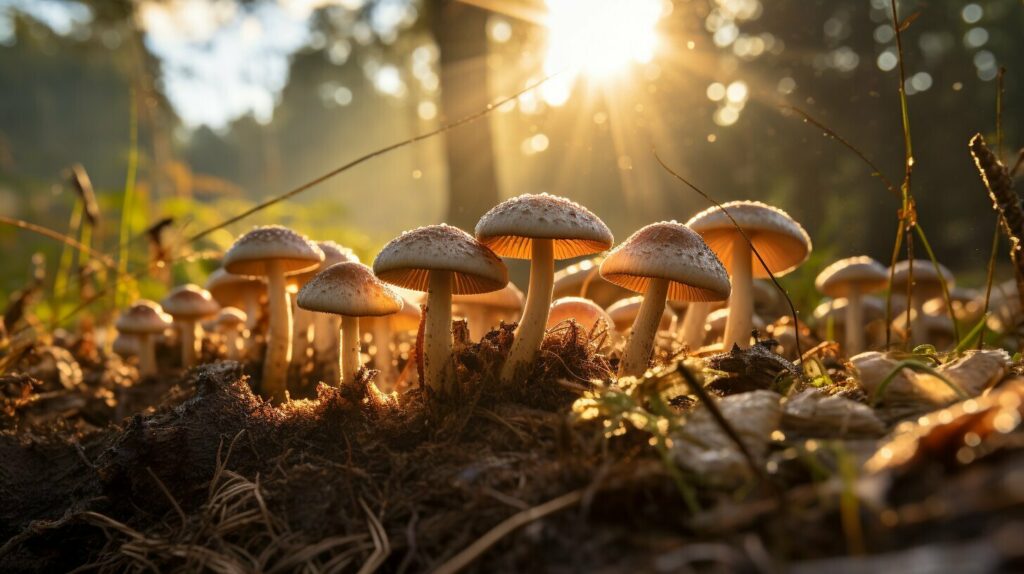
References:
– National Institutes of Health. Office of Dietary Supplements. Vitamin D Fact Sheet for Health Professionals. Retrieved from https://ods.od.nih.gov/factsheets/VitaminD-HealthProfessional/
– Lam, T., & Ho, H. Y. (2020). Mushroom and Health: Brief Summary of the Latest Research. Food Research International. Retrieved from https://doi.org/10.1016/j.foodres.2020.108957
Conclusion
In conclusion, mushrooms can indeed provide a natural and whole food source of vitamin D, allowing you to optimize your nutritional intake and support your overall health.
Mushrooms have the unique ability to produce vitamin D when exposed to sunlight or UV light. For example, white button mushrooms can generate enough vitamin D to meet the recommended daily dose when placed in the midday sun for just 15-20 minutes. Similarly, other varieties like shiitake and oyster mushrooms also have the potential to produce vitamin D when exposed to light.
The vitamin D content of mushrooms can vary depending on the species and their exposure to light. However, research suggests that incorporating mushrooms into your diet can be a natural and effective way to increase your vitamin D levels. In fact, studies have shown that mushrooms can be as effective as vitamin D supplements in raising vitamin D levels in the body.
By including mushrooms in your meals, you can not only enjoy their delicious flavors and various health benefits but also ensure you are getting a good dose of vitamin D. Whether you prefer sautéing them as a side dish or adding them to salads, soups, or stir-fries, mushrooms are a versatile ingredient that can easily be incorporated into your daily diet.
So, next time you’re planning your meals, consider adding mushrooms to boost your vitamin D intake and support your overall health. From their ability to synthesize vitamin D to their potential as a whole food source, mushrooms offer a natural and nutritious way to embrace the power of this essential vitamin.
FAQ
Q: Do mushrooms have vitamin D?
A: Yes, mushrooms have the ability to produce vitamin D when exposed to sunlight or UV light.
Q: Can white button mushrooms provide the recommended daily dose of vitamin D?
A: Yes, white button mushrooms can produce enough vitamin D to meet the recommended daily intake when placed in the midday sun for 15-20 minutes.
Q: Which other mushrooms can produce vitamin D?
A: Shiitake and oyster mushrooms also have the potential to produce vitamin D when exposed to light.
Q: Does the vitamin D content of mushrooms vary?
A: Yes, the vitamin D content of mushrooms varies depending on the species and their exposure to light.
Q: Can mushrooms be a natural and whole food source of vitamin D?
A: Yes, research suggests that mushrooms can be as effective as vitamin D supplements in raising vitamin D levels in the body, making them a natural and whole food source of this important nutrient.

